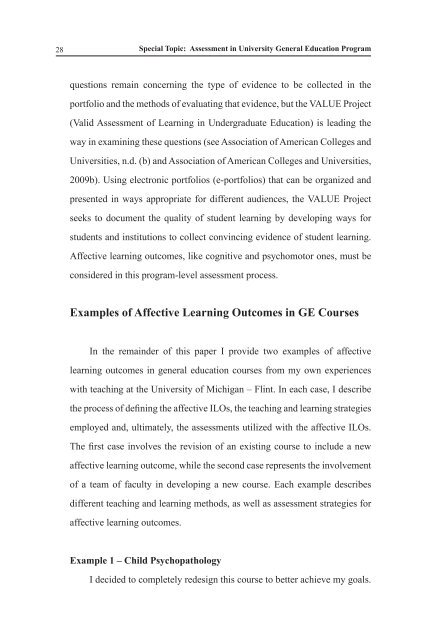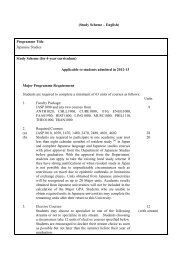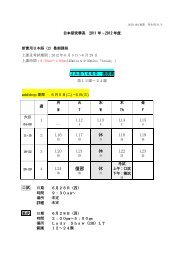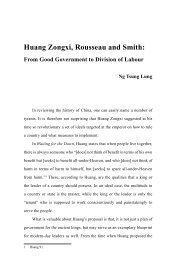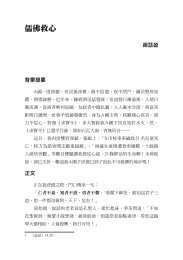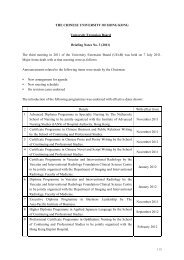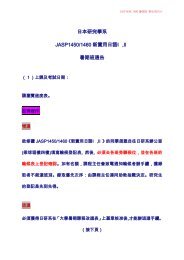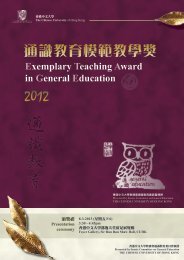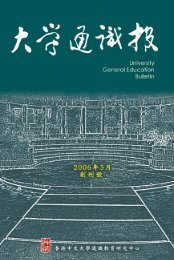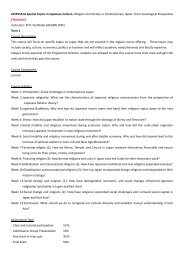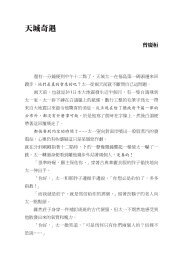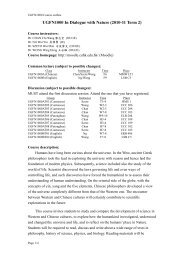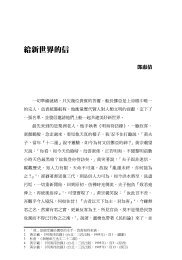ä¸è¼å ¨æ¸ - The Chinese University of Hong Kong
ä¸è¼å ¨æ¸ - The Chinese University of Hong Kong
ä¸è¼å ¨æ¸ - The Chinese University of Hong Kong
Create successful ePaper yourself
Turn your PDF publications into a flip-book with our unique Google optimized e-Paper software.
28 Special Topic: Assessment in <strong>University</strong> General Education Program<br />
questions remain concerning the type <strong>of</strong> evidence to be collected in the<br />
portfolio and the methods <strong>of</strong> evaluating that evidence, but the VALUE Project<br />
(Valid Assessment <strong>of</strong> Learning in Undergraduate Education) is leading the<br />
way in examining these questions (see Association <strong>of</strong> American Colleges and<br />
Universities, n.d. (b) and Association <strong>of</strong> American Colleges and Universities,<br />
2009b). Using electronic portfolios (e-portfolios) that can be organized and<br />
presented in ways appropriate for different audiences, the VALUE Project<br />
seeks to document the quality <strong>of</strong> student learning by developing ways for<br />
students and institutions to collect convincing evidence <strong>of</strong> student learning.<br />
Affective learning outcomes, like cognitive and psychomotor ones, must be<br />
considered in this program-level assessment process.<br />
Examples <strong>of</strong> Affective Learning Outcomes in GE Courses<br />
In the remainder <strong>of</strong> this paper I provide two examples <strong>of</strong> affective<br />
learning outcomes in general education courses from my own experiences<br />
with teaching at the <strong>University</strong> <strong>of</strong> Michigan – Flint. In each case, I describe<br />
the process <strong>of</strong> defining the affective ILOs, the teaching and learning strategies<br />
employed and, ultimately, the assessments utilized with the affective ILOs.<br />
<strong>The</strong> first case involves the revision <strong>of</strong> an existing course to include a new<br />
affective learning outcome, while the second case represents the involvement<br />
<strong>of</strong> a team <strong>of</strong> faculty in developing a new course. Each example describes<br />
different teaching and learning methods, as well as assessment strategies for<br />
affective learning outcomes.<br />
Example 1 – Child Psychopathology<br />
I decided to completely redesign this course to better achieve my goals.


